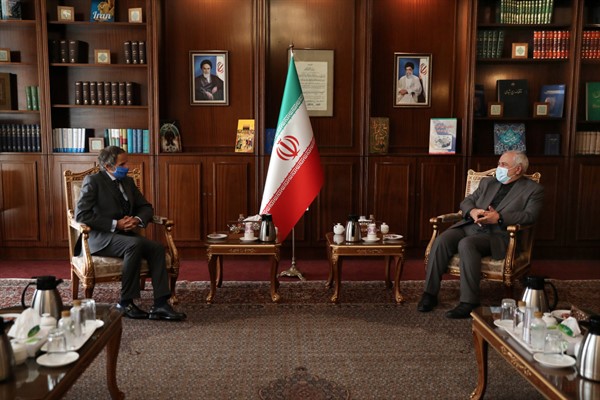In the four decades since Iran’s Islamic Revolution, relations between Tehran and Washington have seen deep enmity offset by brief periods of rapprochement and tactical cooperation. As a new U.S. administration settles into office and asserts its intent to, in President Joe Biden’s words, “offer Tehran a credible path back to diplomacy,” one of those periods may be on the horizon again.
The Obama administration pursued diplomatic engagement with the Islamic Republic, holding direct as well as multilateral talks that culminated in the 2015 deal to curb Iran’s nuclear program, officially the Joint Comprehensive Plan of Action, or JCPOA. Under the Trump administration, the strategic pendulum swung toward an adversarial approach, largely defined by a “maximum pressure” policy of applying sweeping unilateral U.S. sanctions ostensibly aimed at delivering an improved and expanded agreement. This new arrangement would address not just nonproliferation concerns, the Trump administration claimed, but also seek to limit Iran’s ballistic missile program and regional power projection. Though the reimposed and expanded sanctions created significant economic duress in Iran, they did not result in any concessions to U.S. demands, a list of 12 wide-ranging points laid out by Secretary of State Mike Pompeo in May 2018. Instead, Tehran expanded its nuclear activity in contravention of its commitments under the JCPOA, while continuing its ballistic missile development and assuming a more aggressive regional posture.
Questions abound now as to what Biden’s “path back to diplomacy” with Iran could look like in practice. Will the U.S. offer to roll back Trump-era sanctions in exchange for Iran complying with the JCPOA’s nuclear restrictions, and use the existing agreement as a foundation for follow-up negotiations? If so, how will the two sides sequence a return to their respective commitments to the nuclear deal—as an immediate exchange of compliance for compliance, or a gradual, mutual return? Alternatively, will the Biden team pursue a more conditional approach, offering limited sanctions relief in exchange for reciprocal measures from Tehran, but also raising demands up front that go beyond the terms of the nuclear deal itself? Even if the principle of full JCPOA compliance is something to which the U.S., Iran and the other JCPOA signatories—France, Germany, the United Kingdom, Russia and China—are all committed, getting there is unlikely to be smooth or straightforward.

